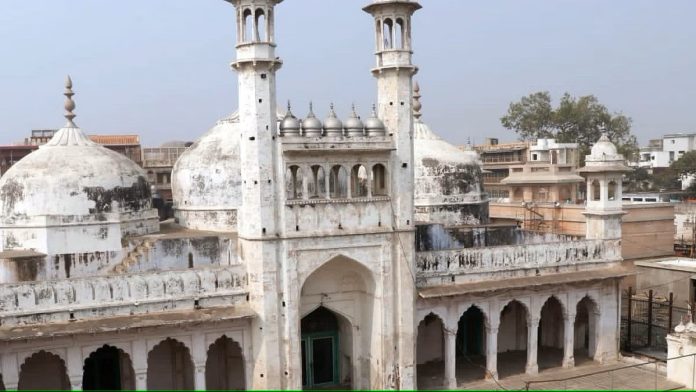– Shakilur Rahman
New Delhi, Dec. 7: Allahabad High Court has said the decision given in 1940 on the right to perform namaz in Gyanvapi Mosque doesn’t hold authority in the ownership dispute. While mentioning the Deen Mohammad case on Tuesday, the mosque side told the court that the High Court had given the right to offer namaz in Gyanvapi Mosque in 1940. On this, the court said it was a separate issue. In this case that decision will not be binding. On Tuesday, the hearing on the maintainability of the declaratory civil suit filed in the Varanasi District Court regarding the ownership of Gyanvapi Swayambhu Vishveshwar Nath Temple in Varanasi started in the High Court.
In this case, petitions have been filed by Sunni Central Waqf Board and Anjuman Intezamia Masjid Committee (AIMC). The AIMC told the court that in 1936, Deen Mohammad had filed a civil suit against the state government for offering namaz in the Gyanvapi Masjid. A challenge was made in the High Court when relief was not received. The High Court had given the right to offer namaz in Gyanvapi Mosque in 1940. The verdict of Deen Mohammad case was read in the court.
On behalf of AIMC, senior advocate SFA Naqvi said that in 2021, Rakhi Singh and four other women had filed a civil suit regarding the worship rights of Shringar Gauri, Ganesh, Hanuman temple and all the visible and invisible deities located in the Gyanvapi complex. Objections were also raised on its maintainability value. This was rejected by the subordinate court. This order remained intact even in the High Court.
A petition against this is pending in the Supreme Court. He said the cases of 2021 and 1991 are related to the same property. If the suit is accepted, the Gyanvapi Mosque will be removed, which will be against the Places of Worship Act. Whereas Waqf Board’s advocate Puneet Gupta said that an objection was filed on behalf of the petitioners under Order 7 Rule 11 under the Places of Worship Act 1991 on the maintainability of the case filed in the District Court of Varanasi in 1991.
The order to hear the issues instead of deciding the application was challenged. On March 17, 2020, the High Court stayed the hearing of the case and sought answers from the temple side. The decision was reserved after argument on both sides. Meanwhile, the Varanasi court ordered a survey. This has also been challenged by filing a petition in the High Court. The High Court has stayed the order to conduct the survey. Meanwhile, on the orders of the subordinate court, a court commissioner was sent. After there is no interference from the High Court and the Supreme Court on the report of the Court Commissioner, a scientific survey is being conducted. The issue of survey has now become meaningless.




